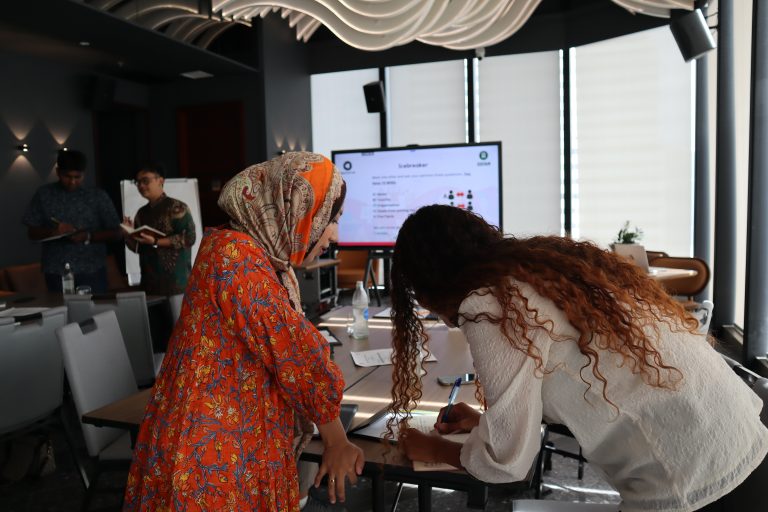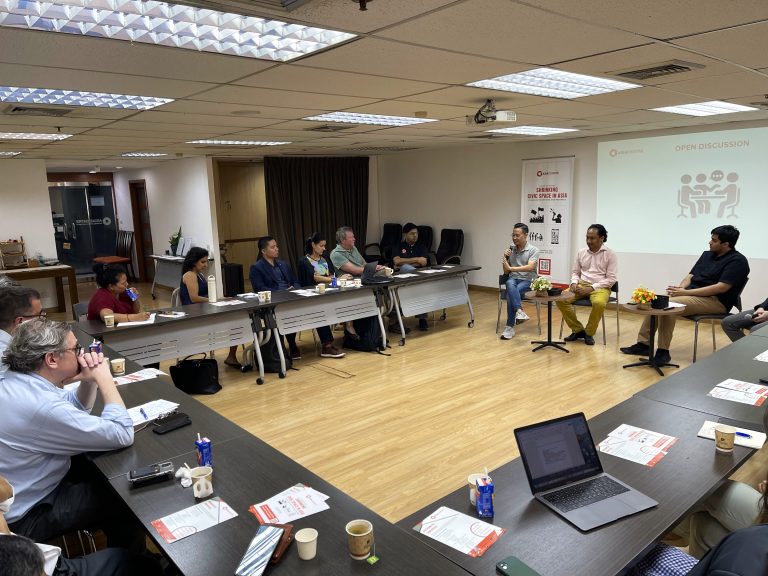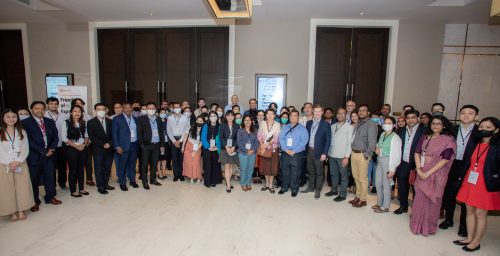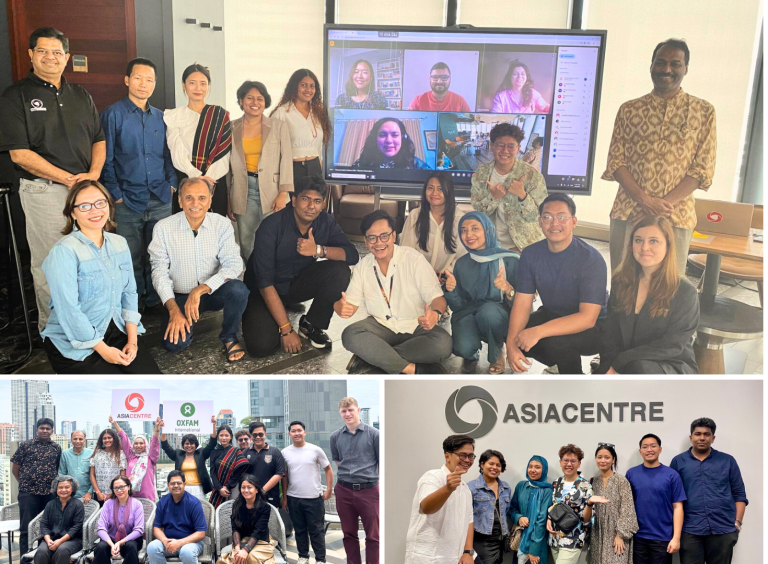
Asia Centre hosted the 2024 Oxfam Young Leader Fellowship Programme from 1st to the 5th of July 2024 in Bangkok, Thailand. This is the second cohort (read about the first cohort here), in which the fellowship aims to equip eight youths from eight different countries in Asia with the tools, skills, knowledge and networks to drive positive change in their communities. Apart from a week of onsite induction, close mentorship and hands-on practice will be other ways in which the fellows will be supported throughout the fellowship.
The eight fellows chosen for the 2024 cohort are Seena Kimhoihching from India, Achmad Zulfikar Luthfi from Indonesia, Bhawana Ghimire from Nepal, Mehrosh Zahid from Pakistan, Jonathan Israel Gelogo from the Philippines, Vishnuvardhanan Padmanabhan from Sri Lanka, Isaura Baptista Barros from Timor Leste, and Nguyen Minh Ha from Vietnam.
These fellows were selected from a diverse pool of over 1000 candidates through a series of shortlisting processes including interviews. Collectively they represent a group of aspiring individuals who possess the vision and determination to bring about positive change within their respective societies on pressing issues such as land rights, climate justice, and LGBT+ inclusive education.
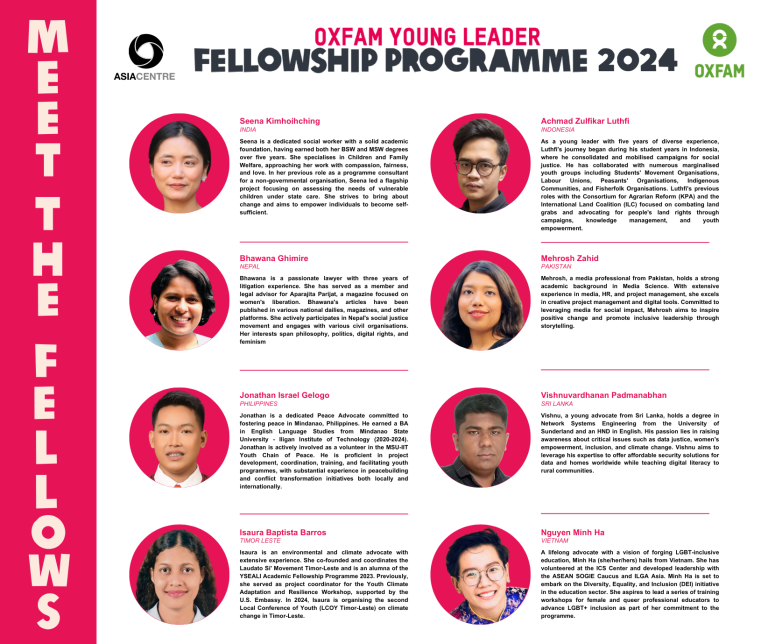
During the induction week, the Fellows took part in a total of 10 leadership modules, several media workshops as well as reflection and brainstorming sessions. Apart from leadership skills, the sessions were geared to assist in the conceptualisation of their projects and strategise their advocacy efforts.
Day One commenced with an introduction to the programme, including the goals of the induction as well as the expectations of the fellows. The induction began with remarks from John Samuel, the Regional Director of Oxfam, who outlined the key challenges in contemporary Asia followed by how the fellowship can respond to these challenges by empowering young advocates in the Asian region. Thereafter Kartini Sunityo and Fatin Arwaeputeh of the Asia Centre delivered the first leadership module, “Inclusive Youth Leadership”. This module sought to develop the fellows’ ability to work in an inclusive manner, with emphasis on teamwork, empathy, and the inclusion of diverse perspectives. Next, Ramesh Singh, a consultant on international development and social justice strategy, delivered the second leadership module on “Leadership Fundamentals: Understanding, Importance, and Challenges”. This session provided the fellows with a foundational understanding of leadership as well as the different types of leadership styles. This module, in conjunction with module one, provided excellent foundational knowledge of inclusive leadership that the fellows built upon throughout the week.
Day Two began with the third leadership module, “Empowering Young Voices: Democracy, Human Rights & Civic Space ” by the Asia Centre’s Ekmongkhon Puridej and International Republican Institute’s (IRI) Tyler Esch. This module focused on youth and the intersections of democracy, human rights, and civic space in the region. Oxfam’s Mustafa Talpur presented the fourth leadership module, “Economic Justice (Income, Wealth & Gender Inequality)”. In this session, the fellows got the chance to deepen their understanding of the causes and impacts of economic inequality in society.
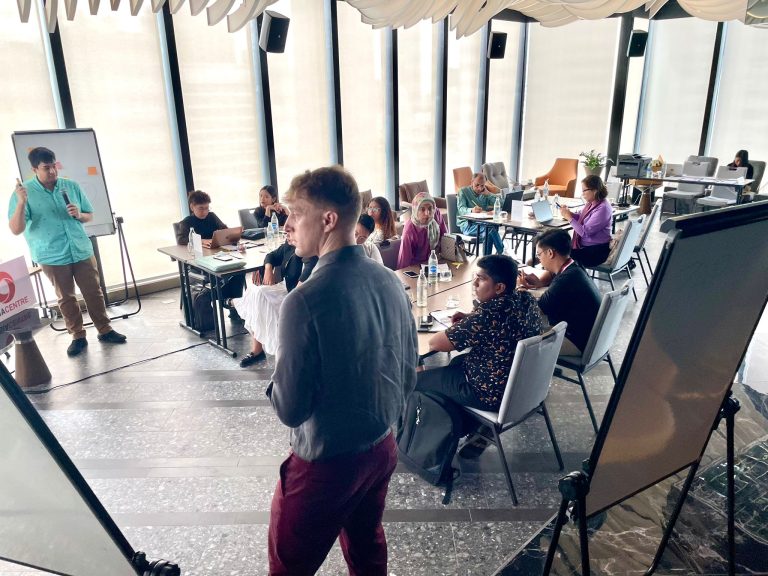
Dr. Wanun Permpibul, the executive director of Climate Watch Thailand, delivered leadership module five, “Youth Action for Climate Justice: Mobilising Voices and Building Partnerships”. This module began with an overview of climate change, including key terminology and concepts. The root causes of climate change: the burning of fossil fuels, and capitalism, in particular the capitalist economies of the Global North disparity between the Global South were also discussed. Kunthinka Nutcharut delivered the sixth leadership module, “Youth Leadership in the Digital Age”. Kunthinka told the fellows that the digital space is an excellent platform to campaign, but there are inherent risks to an advocate’s security when using digital spaces. Hence, advocates must take measures to protect themselves.
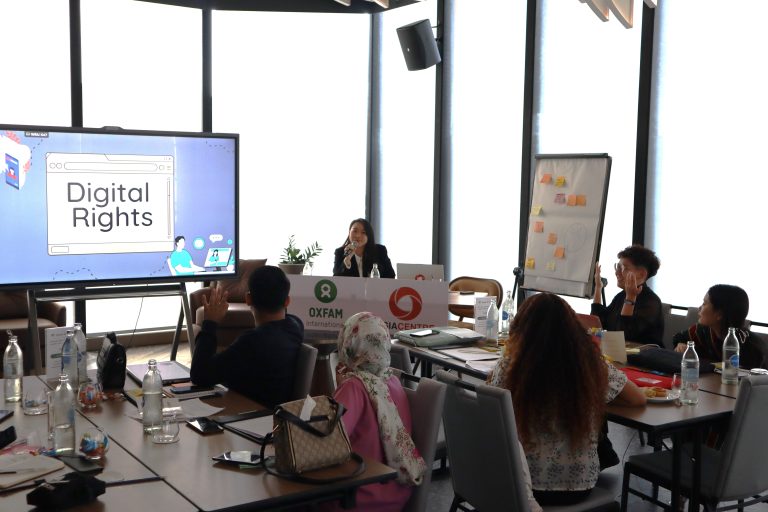
Day Three continued with Asia Centre’s Dr. James Gomez delivering leadership module seven, “Global Development Challenges, Actors and Civil Society Legitimacy & Accountability.’. Here, legal, financial and political challenges being faced by civil society were discussed. In this session, each fellow was able to share their own observations and reflections of civil society in their own countries. Following this, leadership module eight was a panel discussion on “Youth Roles and Leadership in Asia: Advancing Feminist Approaches for Gender Equality and Justice”. Wannapong (Nhuun) Yodmuang, Human Rights and Advocacy Manager at the Asia Pacific Gender Network, noted the issues faced by trans and gender-diverse people across the region, as identified by her organisation’s research, while Dewi Ratnawulan, a Senior Human Rights and Gender Advisor at Rapid Asia, discussed gender inequality issues as identified by Rapid Asia’s research.
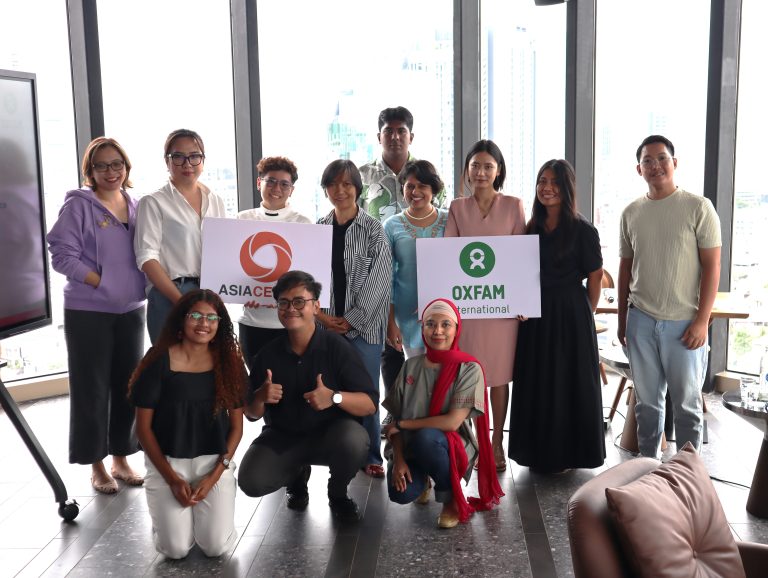
Leadership module nine was delivered by Ratpatsa Trirath of Oxfam in Thailand, entitled, “Cultivating Youth Advocacy for Ethical and Inclusive Business”. In this module, the difference between the terms ‘inclusive’ ‘responsible’, and ‘sustainable’ in business were highlighted. Here the important takeaway was that advocating for inclusive, responsible, and sustainable business can positively impact human rights in the community.
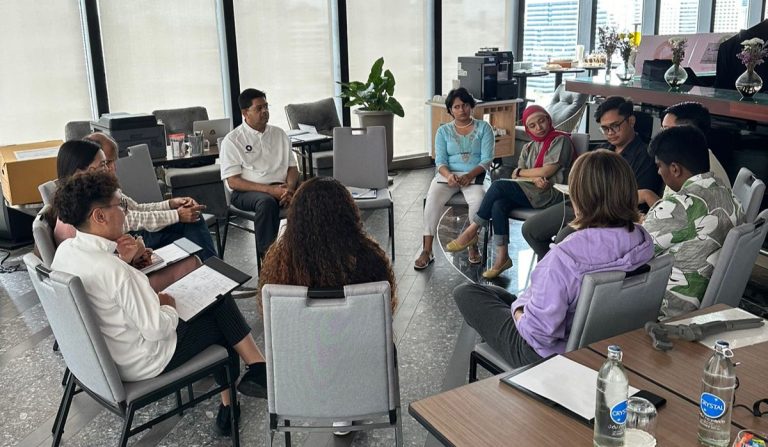
Day Four began with the tenth leadership module, “Advocacy, Campaigning & Public Engagement Tools”. Mustafa Talpur from Oxfam introduced the history of the civil rights movements and examined their successes and failures, and how these lessons can be applied today. Following this, the fellows were introduced to several media workshop sessions. First, Oxfam’s Mufasta Talpur ran a session on Media Engagement & Mobilisation, helping the fellows better understand how to “engage” with different marginalised groups through digital platforms. Second, Sanjay Gathia, the Founder and Director of the Borders and Broader Conversations Initiative discussed how media can be “mobilised” for social change, alongside the challenges and complexities associated with social media. He also informed the fellows of various media engagement strategies. Third, Nipuna Kumbalathara of CIVICUS delivered a session on “Why Digital Media Matters for Youth Leadership”. This session introduced the fellows to the art and practice of digital storytelling, and deepened their understanding of the pivotal role digital media has in shaping youth leadership and advocacy. Thereafter, the Asia Centre led a session on self-reflection. This encompassed an integration of insights where the fellows discussed their refined perspectives on social issues following the induction programme so far; strategic goal setting, where fellows began setting their goals for the duration of the fellowship; and communication and collaboration sessions, where strategies to communicate and engage media successfully were formulated.
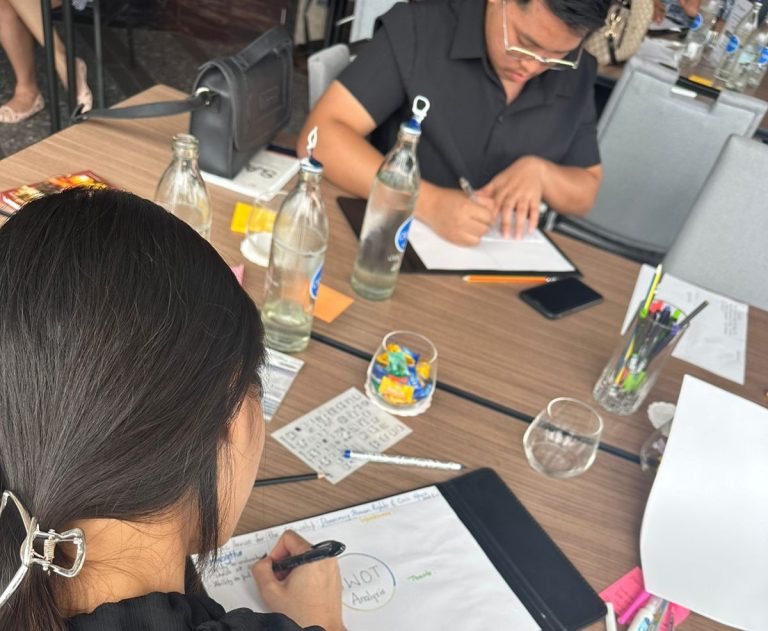
Day Five was the induction programme’s final day. It consisted largely of further reflections and brainstorming activities, run by Kartini Sunityo of the Asia Centre and Cyril Wendy Maano of Oxfam in Asia. In their reflections, the fellows noted getting a deeper understanding of legal aspects of advocacy, the need for practical training, how to craft effective stories, and how to ensure their own digital safety. This was followed by a session held by Dr. Gomez and Mustafa, who helped the fellows identify practical steps they can take to operate as a collective unit. Ideas that were generated include Asia-wide democracy awareness campaigns held on International Democracy Day, as well as the potential for events and other activities during the World Economic Forum and the upcoming COP29.
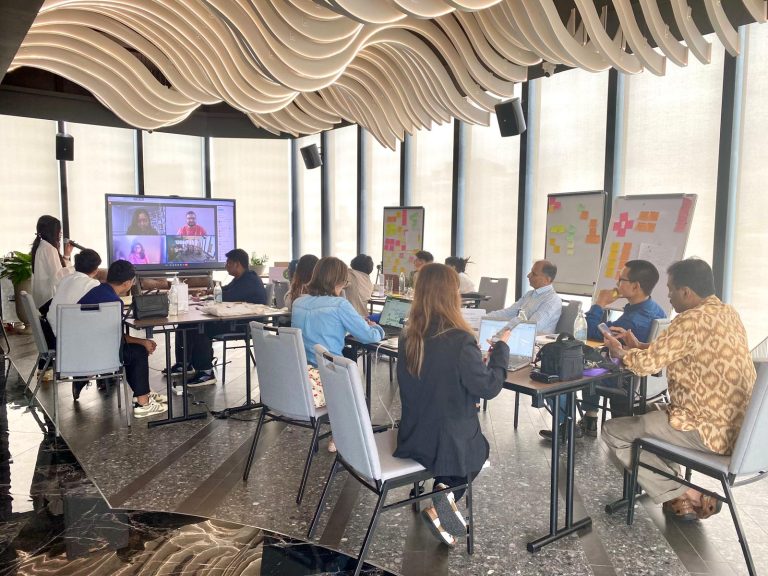
Following this, the fellows were introduced to their mentors. Six fellows were allocated to Oxfam, and two were allocated to the Asia Centre. The fellows then discussed their aspiration and reflection of their leadership journey during the introduction to their mentors giving the mentors a chance to set their expectations. Following this, the fellows were presented with a certificate of participation. To mark the end of the induction, Dr. James Gomez of Asia Centre, and John Samuel of Oxfam delivered their closing remarks. The main thrust of these speeches were advice to the fellows to create multicultural spaces within their networks, and to collaborate with those from different backgrounds.
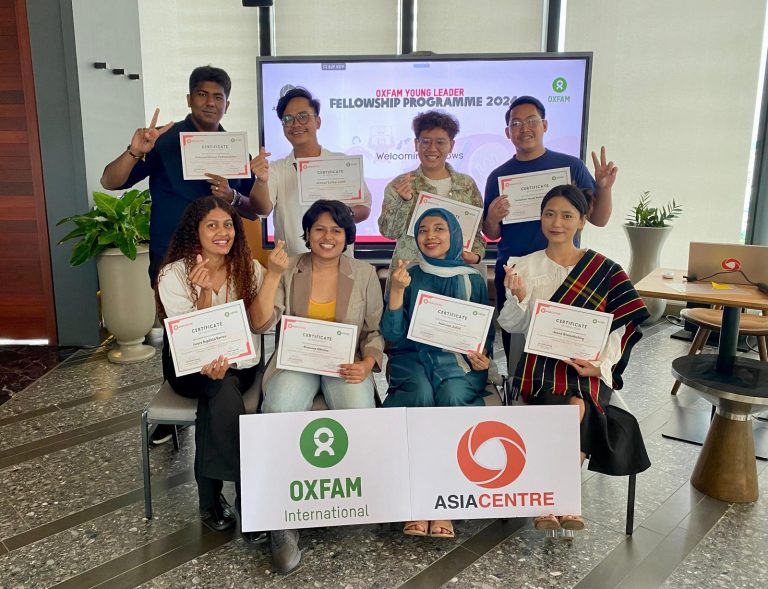
At the end of the induction, the fellows agreed they will collaborate with each other to raise awareness on the thematic issues of gender justice, climate justice, economic inequality, civic space and democracy, digital rights and data justice and inclusive and responsible value chains and businesses. They plan to do so by public mobilisation building and engaging with social movements, using media and communications tools.
Overall the fellows found the induction week useful to kick-start their fellowship programme. Bhawana Ghimire from Nepal shared she gained valuable insight into various cultural, social, and political perspectives. In particular, gaining a deeper insight into Asian countries, and the importance of mutual learning and collaboration. Achmad Zulfikar Lufthi from Indonesia noted he had learned about the importance of alternative narratives and picked up new leadership skills. Both of which he looks forward to applying in his advocacy work.
If you want to catch a glimpse of the event, here is the link to the Asia Centre’s TikTok summary of the induction week.
After the induction programme, the fellows visited the Asia Centre Research Hub in Bangkok, Thailand!
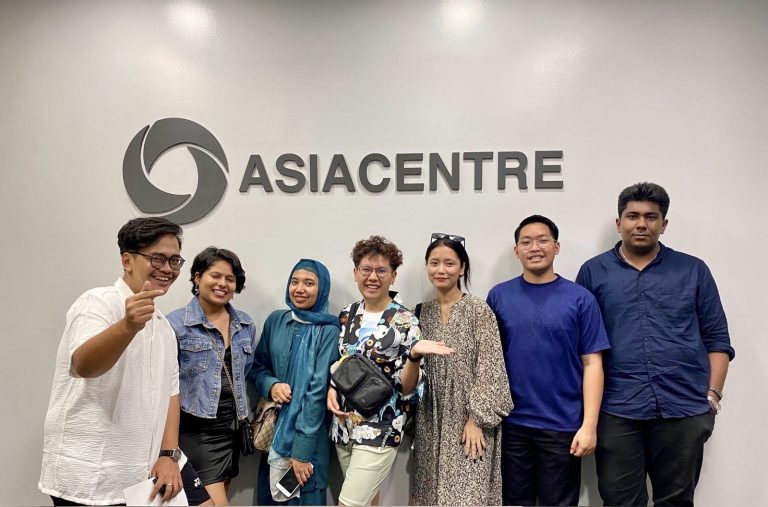
Asia Centre is a civil society research institute in Special Consultative Status with the United Nations Economic and Social Council. It serves as a knowledge partner and undertakes evidence-based research as well as provides capacity-building training for end beneficiaries. If you would like to collaborate with the Centre, please send an expression of interest to contact@asiacentre.org.
Follow Asia Centre’s social media channels for more information.

